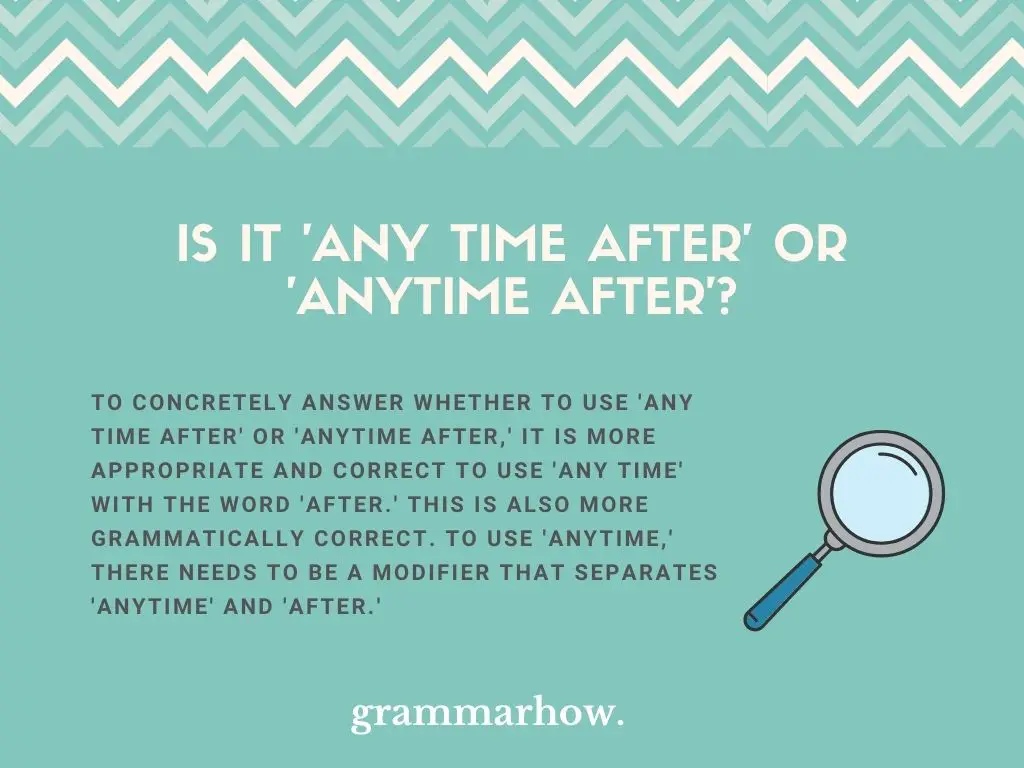

Similarly, if it’s the subject of the sentence, it should be any time (as in Any time is a good time for cake). This is another sign that you want any time. When any time is used with at, it can be followed by extra information that specifies the time ( at any time of day at any time of night at any time of year). In contrast, if the term follows the preposition at, it should be the noun phrase any time. You can often test whether it’s appropriate to use anytime by seeing if you can substitute whenever or at any time. When a term is spelled as two words as opposed to one, it’s often a clue that it’s used as a noun.Īnytime or any time: when to use each oneĪnytime can be used in the same places that you can use another adverb, especially whenever. Other examples are so common that you might not even realize they were formed from noun phrases, such as sometimes. For example, the noun phrase every day becomes the adjective everyday. In English, it’s pretty common for two-word noun phrases to be pushed together for use as other parts of speech. For example, when someone thanks you for helping them, you might respond by saying Any time! Glad to help. The phrase any time is also used as an informal response to a person expressing thanks, similar to you’re welcome.
ANYTIME OR ANY TIME FREE
whenever.” Because it’s an adverb, it modifies a verb, as in Feel free to call anytime or I won’t finish anytime soon.Ī more recent use of anytime is as an informal adjective that means something like “suitable for any time or occasion.” It’s typically used in a prepositive position (meaning it comes before the noun it modifies) and in contrast with a similar grammatical use of sometimes, as in Cookies are a sometimes snack, but carrots are an anytime snack. But it also commonly appears by itself (without at), as in Any time is a good time for cake.Īnytime is an adverb meaning “at any time regardless of hour, date, etc. Importantly, it functions as a noun, often in prepositional phrases with the preposition at, as in Feel free to call at any time. any timeĪny time is a common and straightforward noun phrase that means exactly what it seems like it does based on its component parts. The phrase that means “you’re welcome” is any time. Anytime is an adverb that can replace (or be replaced with) “at any time” or “whenever,” as in Please call anytime or They won’t arrive anytime soon. Any time is a noun phrase that is commonly used after the preposition at ( Please call at any time) or by itself ( Any time you choose for the appointment is fine).


 0 kommentar(er)
0 kommentar(er)
